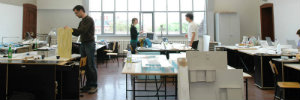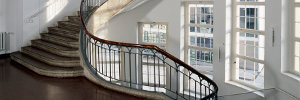Universität


»Zukunft der Demokratie«: 24. April, 17 bis 18.30 Uhr, Oberlichtsaal

»BEYOND NOW ⸺ Zukunftsfragen der Gesellschaft«

Wichtigste europäische Veranstaltung für Virtual, Augmented und Mixed Reality

Alumni der Fakultät Medien beim »Laval Virtual 2025« in Frankreich ausgezeichnet
Alumni der Fakultät Medien beim »Laval Virtual 2025« in Frankreich ausgezeichnet

Internationaler Austausch zu Recycling, Baumethoden und -materialien

Wiederaufbau in Syrien nach dem Krieg: Workshop am 24. und 25. April in Weimar
Wiederaufbau in Syrien nach dem Krieg: Workshop am 24. und 25. April in Weimar

Symposium Messmodelle: 28. und 29. April 2025 in Weimar

Interdisziplinärer Workshop gibt Einblicke zum Thema »Messmodelle«
Interdisziplinärer Workshop gibt Einblicke zum Thema »Messmodelle«






